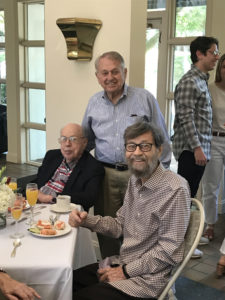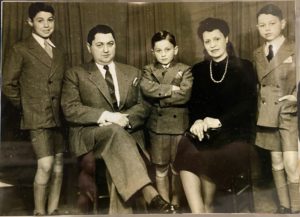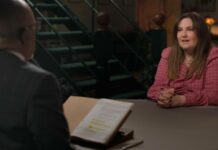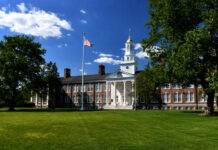
Holocaust refugee Claude Boni of Penn Valley died on Jan. 29 at age 88. He served as a Realtor in Wynnefield, University City and West Philadelphia for four decades.
Boni, along with his mother, father and two older brothers, Sylvain and Raymond Boni, fled to the United States from Bari, Italy, aboard the USNS Henry Gibbins on Aug. 4, 1944. They were among 982 other refugees aboard the Army transport boat shared with wounded soldiers en route to the Fort Ontario Emergency Refugee Shelter in Oswego, New York, under the orders of President Franklin Roosevelt.
The refugee shelter in Oswego provided schooling, medical care and food to its residents. During the family’s stay in Oswego, First Lady Eleanor Roosevelt visited the refugees.
The family’s stay in the U.S. was supposed to be temporary — Roosevelt was only able to make a deal with Congress about the arrival of the refugees under the auspice of them returning after the war. However, strings were pulled, and the refugees were granted amnesty and were able to stay in the U.S, albeit in a convoluted process.
“They were driven to Canada — crossed the border to Canada — and then they walked over the border to make entry into the United States,” son Paul Boni said.
Shortly after immigrating to the U.S., the family relocated to Philadelphia, as Claude Boni’s mother, Bellina Boni, was heartened by the prospect of having her sons grow up in the “City of Brotherly Love.”
Claude Boni’s father Jacques Boni died of a heart attack in Bari at age 39 and was buried in a cemetery there. The family returned to the cemetery when Claude Boni was 65 — his first time returning to Europe since he fled as a child and his first time visiting his father’s grave.
The family was unable to find Jacques Boni’s grave and asked the cemetery attendant about its location. When they mentioned they were Jewish, the attendant was able to guide them to the hidden Jewish section of the cemetery and show the Bonis their father’s grave, a gesture for which Claude Boni was grateful for the rest of his life.
“Since then — it was over 20 years — my father sent money to the cemetery,” daughter Jackie Camhi said. “And not only his father’s grave but to help with the landscaping on all the parts of the small Jewish section.”
On Nov. 27, the attendant wrote Boni a letter with pictures attached of Jacques Boni’s grave, renewing his annual commitment to care for the graveyard.
Boni was born in Paris in 1933, but within the first 11 years of his life, he also had lived in Skopje, North Macedonia; Sofia, Bulgaria; Tirana, Albania; and then Bari, as his family worked to evade the Nazis and give their children a normal childhood. The brothers, most of all Claude Boni, enjoyed playing soccer. At one point, he traveled with a soccer team over the mountains as part of the family’s escape plan.
As an adult, Boni spoke little of his childhood, not wanting it to define him, but he spoke at greater length about his years in the U.S.
After settling in Philadelphia, Boni attended West Philadelphia High School and then the Pennsylvania State University, where he studied health and physical education.

Over the summers, Boni worked at the now-defunct Camps Arthur and Reeta in Philadelphia, where he was a camp counselor for Joseph Levine & Sons Funeral Director Elliot Rosen in 1952, when Boni was 19 and Rosen was 11.
“I can only assume that my counselors, Claude — and Freddie Rabinowitz was the co-counselor — whatever they did as counselors gave me a foundation to become the person I became,” Rosen said.
Boni was briefly a physical education teacher at Elizabeth Duane Gillespie Junior High School in the School District of Philadelphia, where he met his wife Sandra Boni, who taught English and history. The couple married in 1962.
After finding a passion for real estate and establishing his own office, Claude Boni offered jobs to cousins and relatives in need of mentorship or money.
Softspoken and modest, Claude Boni enjoyed spending time with his family. He developed close relationships with his two grandchildren, Benjamin and Jonathan Brodo, who called him their “hero.”
He was “kind of heart. He always extended an opportunity to family, to anyone who came to him needing advice,” Sandra Boni said.
Claude Boni is survived by his wife, older brother Sylvain Boni, two children and two grandchildren.
[email protected]; 215-832-0741






